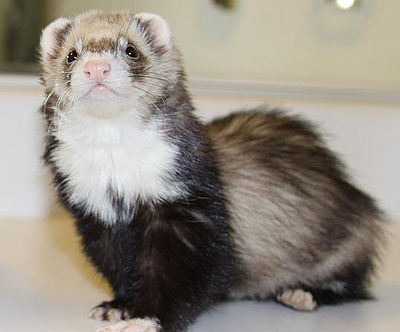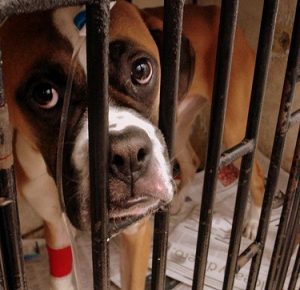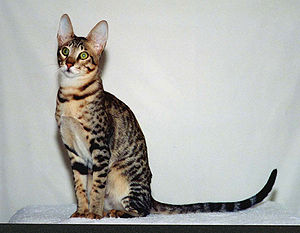
As with all animals, ferrets speak volumes with their bodies as well as their voices. Learning to read your ferret’s language makes for a happier, closer relationship.
When your ferret is hungry or thirsty, s/he will tell you by playing with the food or water bowl. If there is food remaining in the bowl, s/he could be bored and looking for some playtime.
Your ferret is looking for attention when s/he nips at you. At first, your ferret may also keep running back and forth to indicate it’s time to play. Try not to let it get to the nipping stage.
A happy ferret will hop and dance around holding its head high. If s/he is curious and excited, your pet will keep its nose to the ground and follow whatever scent has its interest.
If your ferret stares at you, it may be difficult to know exactly what s/he wants. Staring at a particular object such as food or a toy can give you a good indication of what interests him/her.
A fearful ferret may cower and look towards whatever is causing the fear reaction. Hissing can indicate fear or anger. Sometimes the tail fur will stand on end. Most fearful ferrets run to a hiding place until they feel safe again.
If your ferret is ill or in pain s/he will keep its body close to the ground. Your ferret may sleep more, be lethargic, be experiencing diarrhea or vomiting. If any of these signs are present, take your ferret to the veterinarian immediately. Like most animals, they often hide illness to protect themselves from predators.
If your ferret exhibits any unwanted behavior such as nipping you, the best way to discourage this is by ignoring it. If the behavior continues, give your ferret a time out by placing him/her in the cage. After about 15 minutes, take your ferret out of its cage and offer some playtime and attention. Your ferret will soon learn that good behavior has its rewards.



